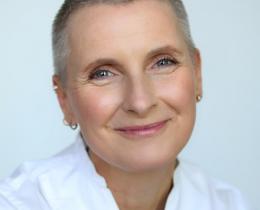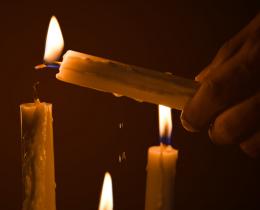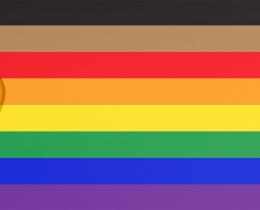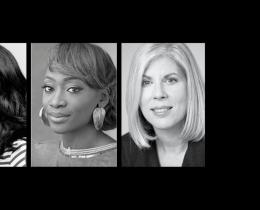Omega: Women in the 21st century are forging new paths while being held to impossible “women's magazine” standards—“perfection” and “balance” are words you encourage women not to use. The Signature of All Things tells the 19th century life story of a rare, intrepid woman scientist. Do you consider yourself political in your writing?
Elizabeth: Somebody asked if Signature of All Things is a feminist novel and I said, “I'm never going to write anything that's not a feminist screed in some way or another, explicitly so or not.”
The challenge was that I didn't want to impose my 21st-century viewpoint and perspective on a 19th-century story. I didn't want to tell this story: “There was this woman, she was really brilliant and because she was a woman nobody listened to her.”
I intended to do that when I started research but I found all these women scientists in the 19th century who men did listen to, oftentimes with a lot of regard. It doesn't mean that the women got to be president of Harvard but their papers were published and people like Charles Darwin wrote them letters and asked their opinion. I thought, “Those women will come out of the grave and scratch your eyes out if you imply that they were in any way victims.” They did their work with such dignity, and they thought of themselves—justifiably—as important scientists within the limits of society at that time.
I wanted to tell the story of a woman's dignity. Dignity is the great female superpower. The women I love and admire didn't get that way by having things work out or be easy. They didn't get that way because things went wrong—things can go terribly wrong and it can break you. They got that way because things went wrong and they worked with it somehow in order to create an existence and identity for themselves that was rooted in dignity and strength.
They showed up, they worked their alchemy, and they turned themselves into somebody noble. That's who I'm interested in. They didn't waste their suffering or their obstacles, they used them. That means the struggle, the humiliations, and the victories. You use it all in order to forge your own character.
Omega: What are this century’s hopes and challenges for women?
Elizabeth: As for the future, I can only speak to the experience of Western women. The audiences I speak to are privileged—I don't mean they're all wealthy or educated—I mean that they're all lucky enough to be women in this moment in history. This culture, despite all of its obstacles and obstructions and difficulties, is the best chance a woman’s ever had. If you're fortunate enough to be here not anywhere else in any other time in history, then you won the lottery already.
I'm always reminding people that we have choices. They may be really hard, really difficult choices. They may require huge amounts of energy and struggle. But we have choices that our grandmothers did not have and our ancestors could never have imagined. What women are going to do with those choices now—that’s the most fascinating story around. Taking ownership of them is, I think, the main thing.
Omega: As part of the first generations of women able to choose not to have children you said, “Being liberated from motherhood liberated me into womanhood.” Can you talk more about what kind of permission you needed and how you gave that to yourself?
Elizabeth: I'm always happy to answer that question. It would have been so helpful for me when I was 28 to have heard more about this when I was struggling with that very question. For some women being a mother is their vocation, there are women and men who are truly in highest service to themselves and to the world in child rearing. That is where their talents are, it's where their joy is, it's where they come into being.
I struggled with that question so much because it was a condition of my marriage. There's a level at which it's very hard not to imitate your mother, whether you had a bad one or a good one. It's the easiest path—to be what you saw. It's not a small thing to say that my sister and I both got married at exactly the same age that our mother did. It was like, “Oh, this is what you do when you're 23. You go to school, then you do this, then you do this.”
There was a lot of reflex and not a lot of reflection. When it came time, I could have had kids by reflex, too. Something stopped me right on the brink. My body, my life, my mind, and my spirit fell apart—for reasons I couldn't identify. For a year I felt, “Why am I such a mess? Oh, I'm such a mess because we're talking about having kids and I can't cope with this idea. Who would I be? Who would I not be? This isn't what's done in my family. How many people would I have to betray to lay claim to this truth inside me that I don't want to do this?”
I spent a year asking every single woman I met what her experience had been having children or not having children. I came to them from such a desperate place, so they were really honest. There were thousands of answers. There were women who said they deeply regretted not having kids. There were women who deeply regretted having kids. There were women who regretted having kids when they had them or who they had them with. There were women who never wanted to have kids and then accidentally had kids and it was the best thing that ever happened to them.
There was no one answer. That was a huge realization for me because I think women are presented with a monolithic vision of what womanhood is and there isn't a monolithic experience of what womanhood is. Every one of those women had had to reckon with the reality of her own life at some point and come to terms with her own choices and existence. I would have to do the same. That's when I found permission to say, "Okay, this is my path. I'll take it with its risks and with its liberation because it's mine.” That's the beginning of when I became an adult and stopped being a creature of reflex.
I have to say now at 45, I have no conflict about it. Once the decision was made, every year I've become more grateful that I didn't have children. But it was a lot of struggle at the time to get to the place now that I feel, “Yep, this is where I'm supposed to be and I'm so happy.”




